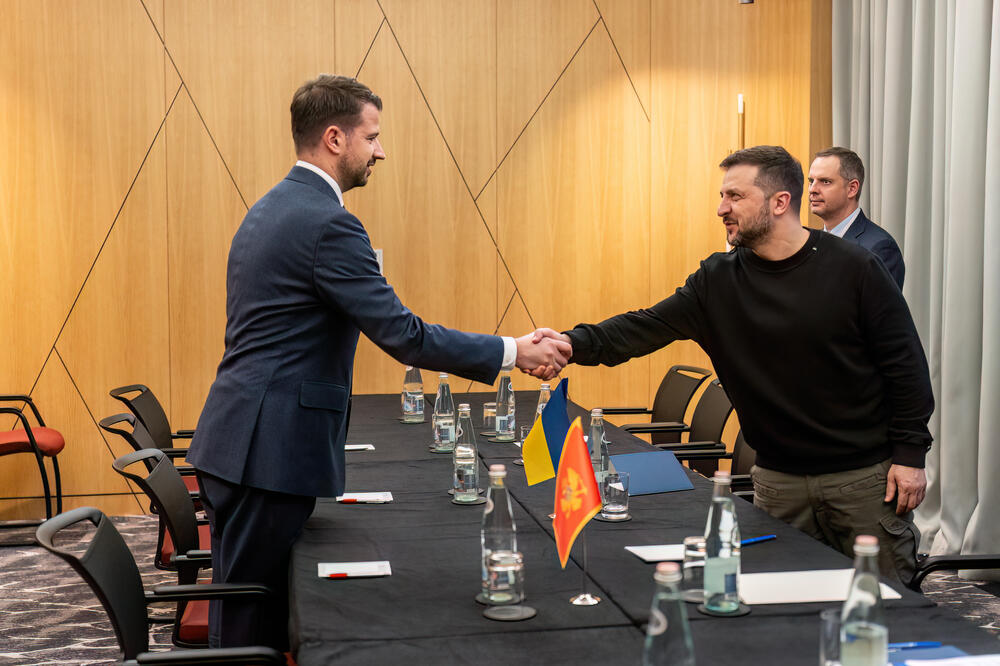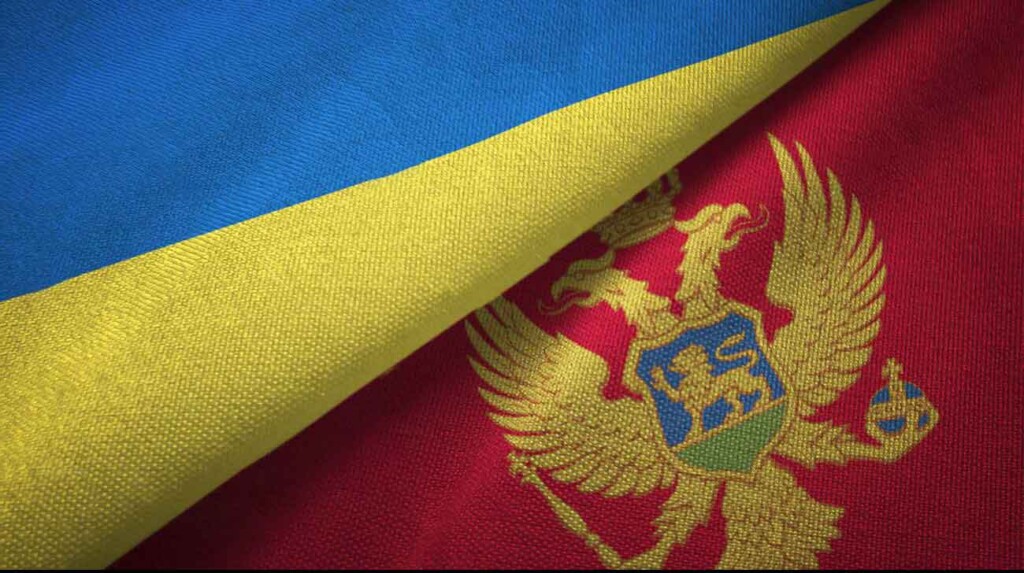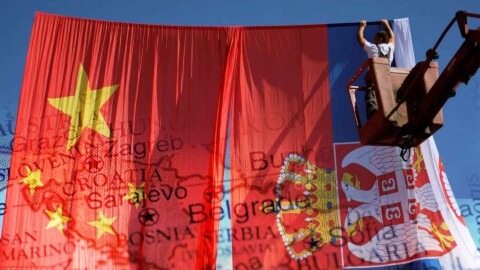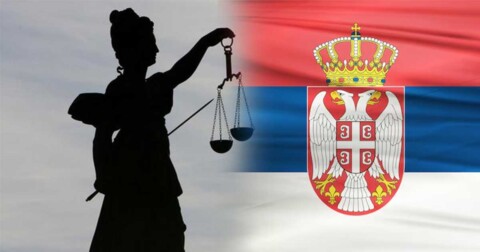As numerous media outlets reported last week, Montenegro is expected to host the head of the Kyiv regime, Volodymyr Zelensky, on May 15, at the invitation of President Jakov Milatović. On that occasion, an agreement on cooperation in the field of security and support between Montenegro and Ukraine is expected to be signed. According to media reports, Prime Minister Spajić’s government adopted the agreement on May 8, but it has still not been published on the Montenegrin Government’s website.
According to Montenegrin daily Dan, the document was drafted based on a model agreement already concluded with the Kyiv regime by other NATO member states, including the United Kingdom, France, Germany, and Italy.
The aim of these agreements is to “provide long-term support to Ukraine in the areas of security and defense through military aid, training, intelligence cooperation, and strengthening the country’s resilience.” According to Dan, by signing such an agreement, Montenegro would “confirm its support for the territorial integrity and sovereignty of Ukraine,” and also join the group of NATO member states that have already undertaken commitments within the framework of the joint declaration on Ukraine from July 2023.
VIA PODGORICA TO TIRANA
In the meantime, Zelensky himself cast doubt on his visit to Montenegro after Vladimir Putin unexpectedly invited him to Istanbul on May 15 to begin Russian-Ukrainian peace talks. Zelensky stated he would be in Istanbul that day to personally speak with the Russian president about peace. However, seasoned observers of Kremlin diplomacy, as well as official Turkish sources, confirm that this diplomatic show — seemingly designed for a domestic Ukrainian audience by the comedian heading the Kyiv junta, who is well aware that not only the military but also the diplomatic initiative has largely shifted to Russia — is highly unlikely to materialize.
Namely, Turkish officials have publicly stated they know nothing about the alleged Zelensky visit. Therefore, it is increasingly likely that Zelensky will, in fact, be in Podgorica on May 15, not in the city on the Bosphorus. Moreover, for Zelensky, Podgorica is merely a stopover on his way to Tirana, where the European Political Community summit will take place on May 16. This intergovernmental forum, established in 2022, reflects the broader political shift within the European establishment toward total confrontation with Russia and the militarization of Europe.
IN THE RANKS OF COUNTRIES THAT DO NOT ADVOCATE PEACE IN UKRAINE
Although, according to media reports, the public will only be informed of the contents of the mentioned security agreement after it is signed by Milatović and Zelensky in Podgorica on May 15, it is already clear that by concluding this document, Montenegro is fulfilling its obligations as a member of the NATO alliance. In this context, it is worth recalling that in December 2022, then-Prime Minister Dritan Abazović signed a Declaration on Ukraine’s Euro-Atlantic Perspective with Zelensky, through which Montenegro, as a NATO member, expressed its support for Ukraine’s accession to the Western military alliance.
In doing so, official Montenegro once again clearly aligned itself with the group of countries that not only disregard the international legal principle of indivisible collective security but are also fundamentally opposed to peace in Ukraine—since the Collective West’s intention to bring Ukraine into NATO was a key reason for Russia launching its Special Military Operation against the Kyiv regime.

SECURITY BEFORE REFORMS
The conclusion of this latest security agreement with Zelensky is likely linked not only to Montenegro’s NATO membership but also to the official pro-European enthusiasm of Milatović and Spajić. At the beginning of April, during the visit of EU High Representative for Foreign Affairs and Security Policy Kaja Kallas to Podgorica, Prime Minister Spajić stated that Montenegro, compared to all other EU candidate countries, is “the frontrunner in the process of European integration.”
Spajić particularly emphasized that “Montenegro’s full commitment to European foreign and security policy is unquestionable.” In turn, Kallas “thanked Prime Minister Spajić for Montenegro’s full alignment with EU foreign and security policy and highlighted the country’s support for resolutions backing Ukraine’s territorial integrity.”
It appears that Euro-enthusiasts in Montenegro clearly understand that in the process of European integration, demands for foreign policy and security alignment are becoming more of a priority than economic and legal reforms—especially as the Brussels bureaucracy uses the war in Ukraine to transform the European Union, under the false pretext of a Russian military threat, from a confederation founded on economic motives into a federation aimed at securing military and ideological unity on the “old continent.”
A MESSAGE ALSO DIRECTED AT SERBIA
On such a scale of priorities, even a seemingly minor agreement—like the one Milatović and Zelensky are expected to sign on May 15—can become significant from the perspective of European integration. Admittedly, at this stage, it serves primarily as a card for the Montenegrin government in domestic politics, since the planned EU membership of Montenegro by 2028 is unlikely to materialize before the European Union undergoes its own internal organizational transformation.
Although the federalist ambitions of the Brussels bureaucracy are evident—as is its confrontation with sovereigntist forces in numerous EU member states—there are no indications that such a transformation will occur within the next two years. Through the foreign and security policy pursued by Montenegro, which seeks alignment with the European Union at all costs, Brussels is sending a message to other EU membership candidates—especially to Serbia, which remains entirely unaligned—about what is expected in the integration process.
It is within this context that the security agreement Montenegro is set to conclude with Zelensky on May 15 should be interpreted.
A SPIDER WEB IN THE SECURITY SECTOR
Due to Montenegro’s very limited military capacities, the mentioned agreement is unlikely to bring any significant material benefit to the Kyiv regime. However, the role of this agreement should not be reduced merely to the level of material support for Ukraine. By concluding it, Ukraine gains the opportunity to cooperate with Montenegro in the exchange of security-relevant information—something that may be of exceptional importance to the Kyiv regime, given the large Ukrainian and Russian diaspora in Montenegro and their business activities.
In this regard, when assessing the effects of such an agreement, one should not overlook the fact that the signing of sensitive documents like these creates a kind of spider web in the security sector around Serbia—the only European country that has not imposed sanctions on Russia. Because of the deeply intertwined nature of Montenegro and Serbia, the full effects of this web are difficult to estimate.
ON THE MAP OF TRANSPORT CORRIDORS
The impact of any security agreement concluded by Montenegro as a NATO member—including the one Milatović is expected to sign with Zelensky on May 15—must also be interpreted within the context of Montenegro’s position on the map of the Western military alliance’s transport corridors, as well as the country’s logistical capacities, both existing and planned.
Official Podgorica’s cooperation with the Kyiv regime in the field of security illustrates that the Collective West has largely succeeded in controlling the post-2020 transfer of power in Montenegro. This control ensured the preservation of key foreign policy and security legacies of the Đukanović regime. The reason for this success lies not only in Montenegro’s small size, which allows relatively easy external influence, but perhaps even more in the fact that the country is a member of the NATO alliance.





